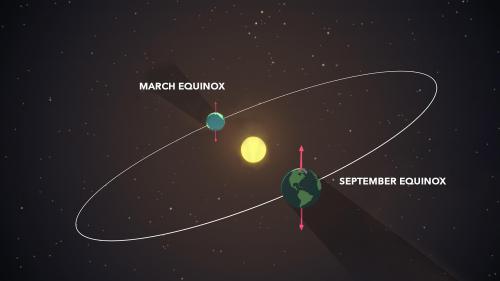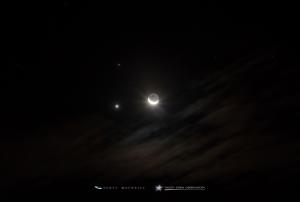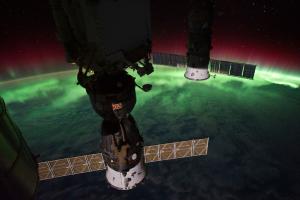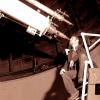Celebration of Space - March 19, 2021
On Saturday, March 20, 2021 at 5:37 a.m. EDT (tomorrow morning), Earth’s equator will intersect with the ecliptic (the path the Sun takes across the sky) marking the Vernal Equinox, and the start of spring in the Northern Hemisphere. At this time the Earth arrives at the point in its orbit where it is neither tilted towards or away from the Sun. This results in an equal amount of day and night periods, with the Sun passing directly overhead (at zenith) when viewed along the equator at Noon. Saturday also marks a switch in daytime length, to a period of the year where the days are longer than the nights. So take a moment on Saturday morning to step outside and welcome the mud laden, mosquito pending, pollen attack of spring, and take solace in the heat loving craziness that’s just around the corner, including beach days, late sunsets, picnics, and fabulous nights under the Milky Way – which kick in early April. Have a Happy Vernal Equinox from all the astro-geeks at Frosty Drew Observatory and Science Center!
Step outside tonight and take a look at that beautiful 35% waxing crescent Moon, and try to notice the dark regions of the Moon alongside the bright crescent, they should be visible due to sunlight reflecting off Earth. We call this Earthshine. While observing, you may also notice a rather bright, reddish star about 2.5º east of the Moon. This is not a star at all, but actually the planet Mars. As we continue to orbit away from Mars, the red planet will appear smaller and dimmer in the night sky, eventually setting during twilight. But not until a few conjunctions with the Moon take place. Tonight is one of those conjunctions, so be sure to step out after twilight wanes, about 9:00 p.m. and check out the celestial dance, compliments of the Moon and Mars.
Fantastic evening passes of the International Space Station (ISS) continue over our region this weekend and coming week. With a weekend of beautiful weather expected, the ISS will appear quite clearly passing over during the twilight hours. Here is a list of notable passes of the Station for the coming nights:
Fri, Mar 19 at 7:52 pm, starting in the SW, rising to 71º, heading towards the ENE and into orbital sunset ← Fabulous Pass!
Sat, Mar 20 at 8:41 pm, starting in the W, rising to 30º, and into orbital sunset.
Sun, Mar 21 at 7:54 pm, starting in the WSW, rising to 43º, heading towards the NE
Mon, Mar 22 at 8:45 pm, starting in the WNW, rising to 18º, and into orbital sunset
Tue, Mar 23 at 7:57 pm, starting in the WNW, rising to 23º, heading towards the NE
Wed, Mar 24 at 8:48 pm, starting in the NW, rising to 15º, and into orbital sunset.
Thu, Mar 25 at 8:00 pm, starting in the NW, rising to 16º, heading towards the NNE
Note that these pass times are applicable to Southern New England and are generally acceptable for the entire Northeast. You can get daily pass times of brighter satellites, including the ISS over the Northeast by visiting the Frosty Drew Satellite Prediction Utility daily. For pass times specific to your location, visit NASAs Spot the Station. Now set your alarms, mark your calendars, and set out to see humanity’s only space based residency and welcome the first days of spring with fantastic evening passes of the International Space Station.
Over the past several weeks, loads of news, images, and more have been coming out about the Mars Perseverance Rover on Mars. Of all the amazing things this rover is set to accomplish, there are two very notable items onboard the rover that have never been sent to Mars previously. First is a rotorcraft (helicopter) that can fly around the area where Perseverance resides and capture images of the surrounding terrain. So far everything checks out with the rotorcraft, and flights will begin in April 2021. The second item is a microphone that can, and has, captured the sounds of Mars for the first time. Over the years we have seen hundreds of images of the martian landscape, but we haven’t had a chance to listen to Mars. That is all changing thanks to Perseverance. Take a moment to listen to what it sounds like on Mars. This is a recording of the winds on Mars. Close your eyes and imagine being all alone on the alien planet, this is what you would hear. Fantastic!
- Author:
- Scott MacNeill
- Entry Date:
- Mar 19, 2021
- Published Under:
- Scott MacNeill's Columns




